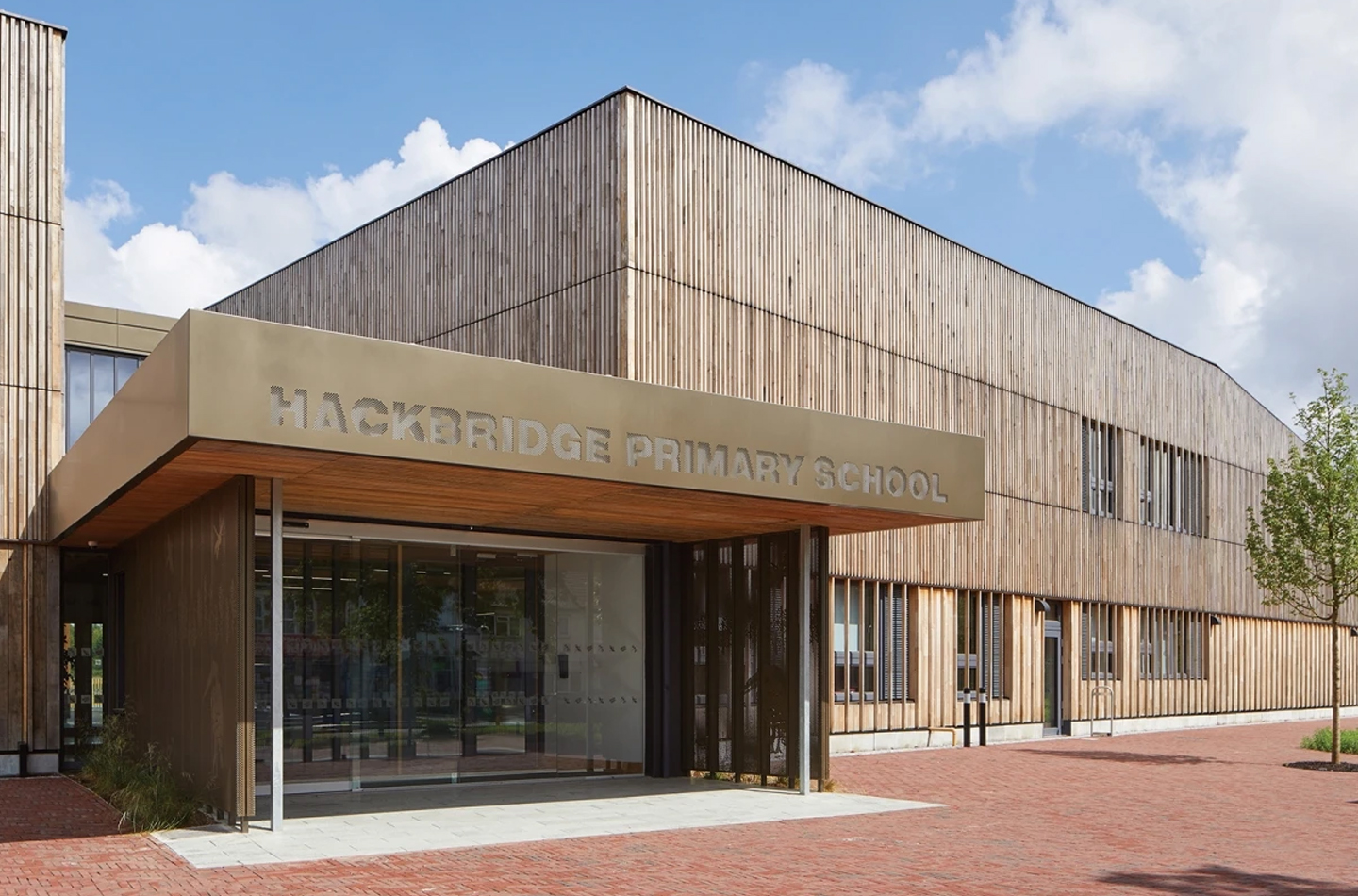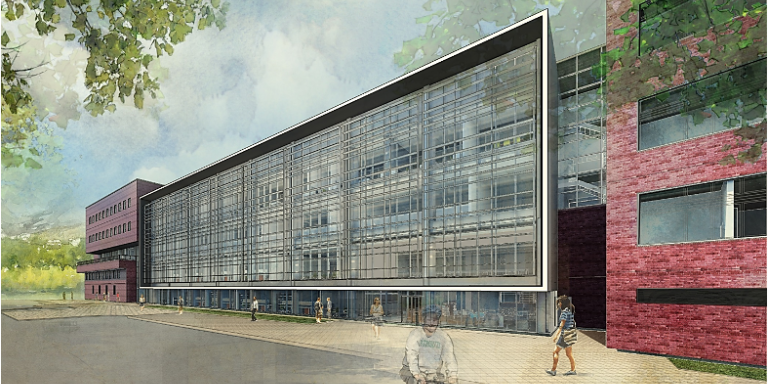Hackbridge Primary School: Lessons Learned from Post-Occupancy Evaluation

Hackbridge Primary is the UK’s first true Net Zero Carbon school and the first to be Passivhaus Plus certified.
In the heart of Wallington, London, stands a testament to innovative design and environmental consciousness: Hackbridge Primary School. Designed by Architype for the London Borough of Sutton, this school is not just a place of learning but a pioneering venture into sustainable education infrastructure. From its renewable energy sources to its student-centric design, every aspect reflects a commitment to a greener future.
A Visionary Design
Nestled amidst the wetlands of Metropolitan Open Land (MOL), Hackbridge is a triumph of thoughtful design and ecological integration. Embracing the Passivhaus Plus standard, the school redefines energy efficiency, boasting renewable energy sources such as ground source heat pumps and extensive photovoltaic installations, generating surplus energy that it contributes back to the grid.
However, the journey towards sustainability hasn't been without challenges. Lessons learned from a critical post-occupancy evaluation highlighted these challenges and emphasized the necessity of frequent monitoring, ensuring the quality of components, and integrating export data into energy management systems to swiftly address deviations.
Read on to learn about the four critical areas our team investigated in their post-occupancy evaluation to ensure this project delivered on its promise of net zero performance by using real data to inform system optimization.
Photovoltaics
The photovoltaic system is wired in three arrays; if any part of an array fails, the whole array is lost. Issues experienced were:
-
Multiple defective panels
-
Defective inverters
-
Issues with photovoltaic export licence (G99)
Lesson Learned
-
Frequently monitor photovoltaics to know when components have failed.
-
Quality of inverters and rewiring installation is key to achieving performance.
-
Export data to EMS to automatically highlight deviations.

Lighting Controls
The lighting control system did not have a user interface to enable the school to make fine-tuning adjustments to settings, such as an overrun timer, without making an expensive callout to the supplier.
Lessons Learned
-
Ensure specifications ask for a head end allowing users to adjust in real-time.

Ventilation
Excessive leakage from AHU due to flat-pack delivery and poor assembly. Also, noted that air volumes turned up due to COVID-19 concerns.
Lessons Learned
-
Avoid the need for flat-pack delivery where possible and allow sufficient plant space for installation and plant replacement.

Domestic Hot Water Controls
Building Management System (BMS) software update post-commissioning stopped communication to the heat pump system, calling for hot water demand, resulting in excessive gas consumption. Hot water was initially programmed to be on 24/7, and energy was reduced significantly when the program was reduced to operating hours only.
Lessons Learned
-
Ensure program parameters are clearly specified and checked during commissioning to monitor performance during occupancy.

Conclusion
The lessons learned from Hackbridge Primary School's endeavor are invaluable. Ongoing energy monitoring has not only enabled substantial reductions in energy consumption but has also illuminated the path forward for future projects. It is imperative that comprehensive analyses, such as CIBSE TM54 or PHPP, are undertaken to provide detailed estimated demand profiles, guiding decision-making processes towards greater efficiency and sustainability.
Moreover, the implementation of comprehensive submetering, feeding into an energy monitoring system, is essential. This holistic approach not only facilitates real-time monitoring but also empowers stakeholders to make informed decisions, ensuring that sustainability remains at the forefront of operational practices.
As we look towards the future, the legacy of Hackbridge Primary School serves as an inspiration. It reminds us that sustainability is not just a goal but a journey—a journey that requires continuous learning, adaptation, and innovation.
----
This project is a winner of our 2023 Introba Awards initiative in the Unlocking Potential category, rewarding individuals and teams that show creative courage.
The Introba Awards, a competition juried by external industry professionals, seek to discover, recognize, and reward the very best work done by Introba employees. Our awards categories are inspired by our Living Systems approach, helping us ideate and tackle complex design challenges and improve the performance of our business.
Learn more about Hackbridge Primary School in the project profile below.
Related News
-
Apr 29, 2024
How iPerform Can Radically Improve Your Building’s Performance
Insights & Perspectives -
Apr 22, 2024
The key to business success is timing
Insights & Perspectives -
Apr 11, 2024
Transforming STEM Education: UVA's Renovated Science Complex
Insights & Perspectives



